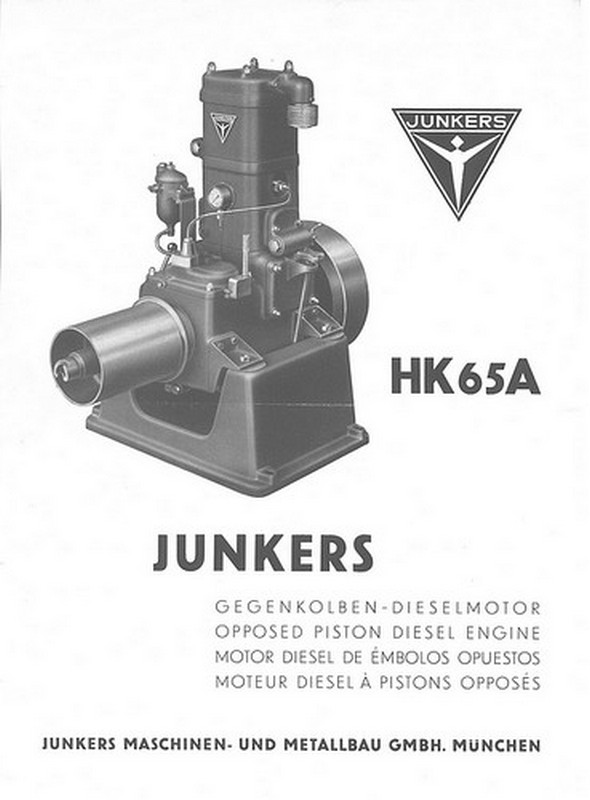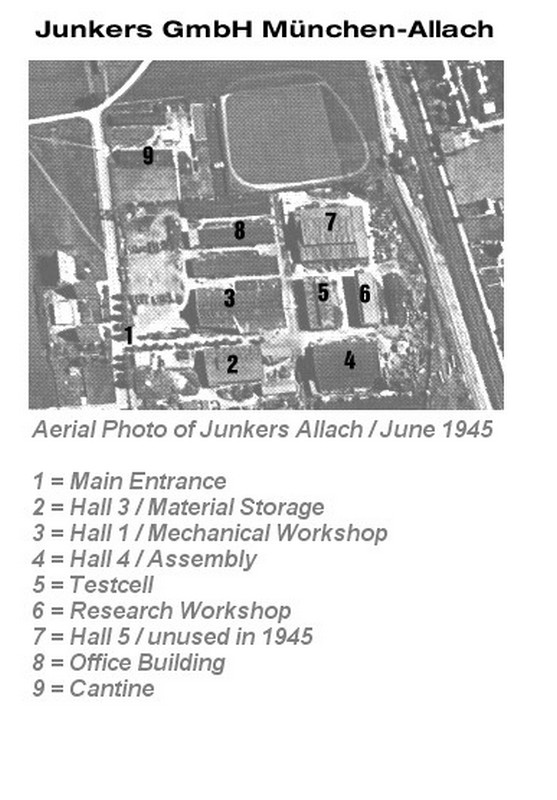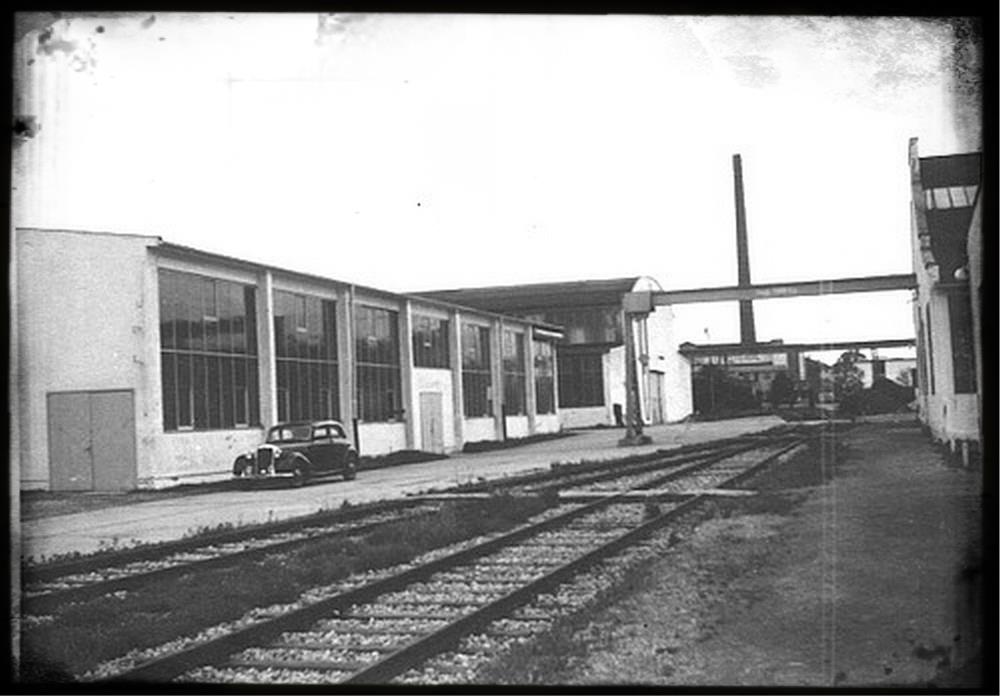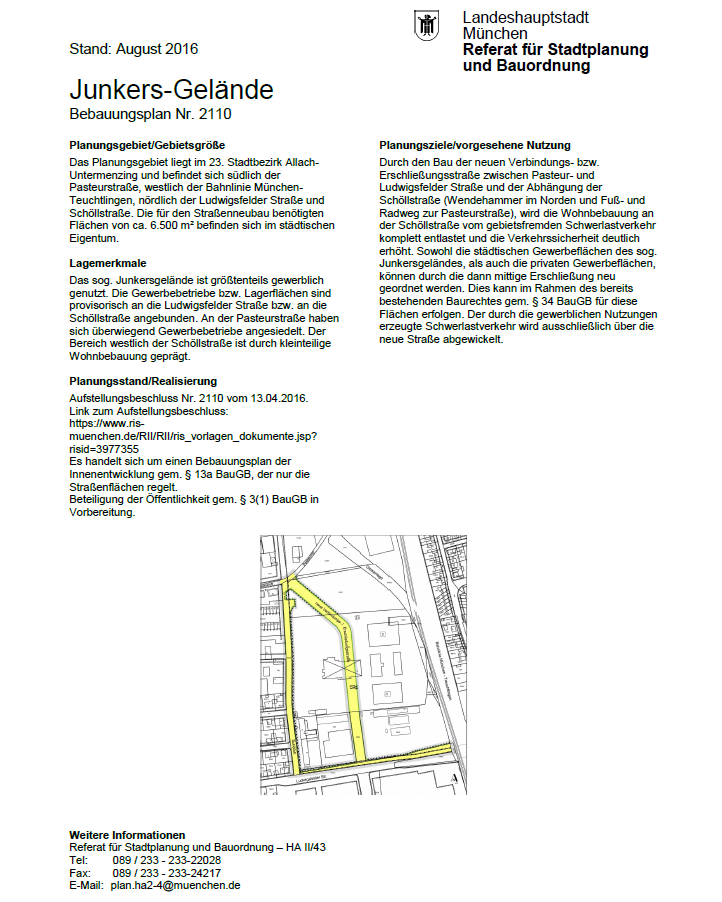Junkers Maschinen- und Metallbau GmbH
see also JMM GmbH Relics

Junkers Metallbau Folder of 1954
Founded:
Main Business:
production of oil engines
Management Positions:
Erhard Junkers (Managing Director during fifties)
Guenter Junkers (Test Cell Manager)
Locations:
Munich-Allach / Kirschgelaende, Oertelplatz, Schoellstrasse 8 (1935 - 1945, 1953 -)
Baierbrunn (1050 - 1953)
When Hugo Junkers was forced to leave Dessau in 1934, he established a new Forschungsanstalt Prof. Junkers at Munich. It seems, as if it was intended to transfer the remains of the stationary engine research from Dessau to Munich as well, while the serial production of these engines were sold with Jukra Chemnitz in 1932. Between 1935 and 1939 a new facility was built in Munich-Allach at the Schoellstrasse 8, which finally consisted of three large production halls, two smaller halls for testing and experimentals, one storage hall and three small office buildings. The owner of the facility was Junkers Motorenbau GmbH, which probably was not integrated into Junkers Flugzeug- und Motorenwerke A.G. as an entity, but might have survived the Dessau integration process and was transfered to Allach. 
During the second half of the thirties mostly free piston compressors were manufactured in Allach, which were used in German submarines. The still existing stationary oil engines of the Dessau Research Institute were also transfered to Allach, i.e. the Junkers M12, which was found here in the early 90s.
After WWII the facilities at Allach were used by the U.S. forces, the 569th Ordnance Medium Automotive Maintenance Company from June 1947 to June 1948. In 1950 the Junkers Maschinen- und Metallbau GmbH was founded and started the free and opposed piston production at a small town near Munich called Baierbrunn. In Summer 1953 the Allach facilities were left by the Allied forces and Junkers Metallbau returned into their preWWII facility at Allach. Primary products were low pressure compressors, but also some high pressure systems for the chemical industry. Also a few one or two cylinder opposed Diesel engines for smaller ships were built in Allach parallel to the Chemnitz production. In 1955 about 200 people were employed at the Allach facilities. 
Testcell (left front) and Hall 4 (left back) in 1954
During the sixties the production of Junkers free piston compressors was stepwise reduced and finally stopped. The workshops continued their work as a subproducer for Krauss Maffei for a while, but finally Junkers Metallbau was closed in the seventies.
These informations were kindly provided by
Christoph Turowski, Nördliche Seestraße 16a, 82541 Ammerland
Email: CTurowski@t-online.de
In 2016 the City of Munich provided
a utilization concept for the former Junkers area in Allach
The announcement is available at the City of Munich Homepage
 .
.
introduced Dec 2004, transfered Dec 2017
http://hugojunkers.bplaced.net/
contents last updated 16 Jun 2018

